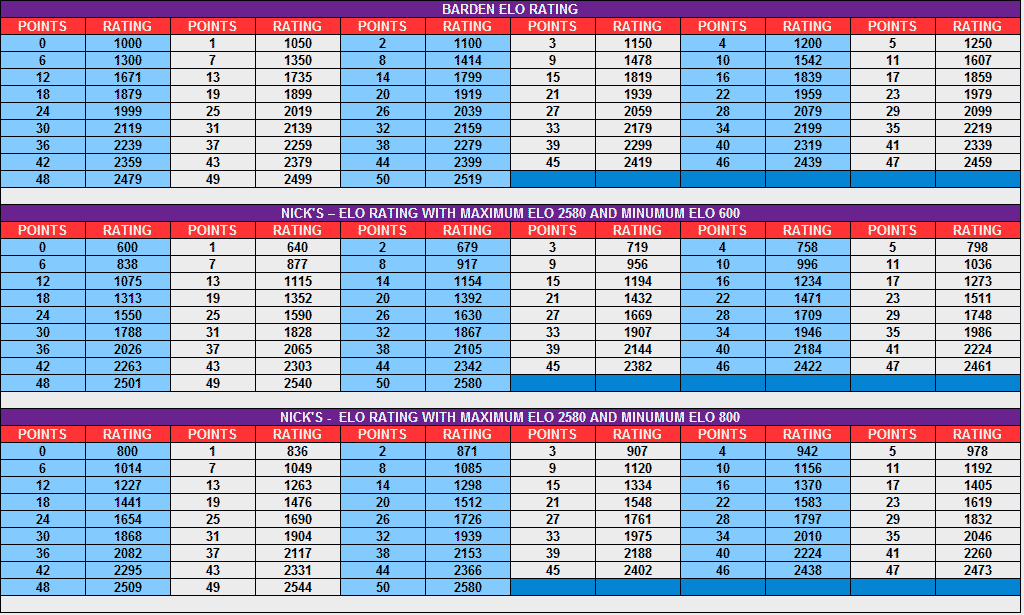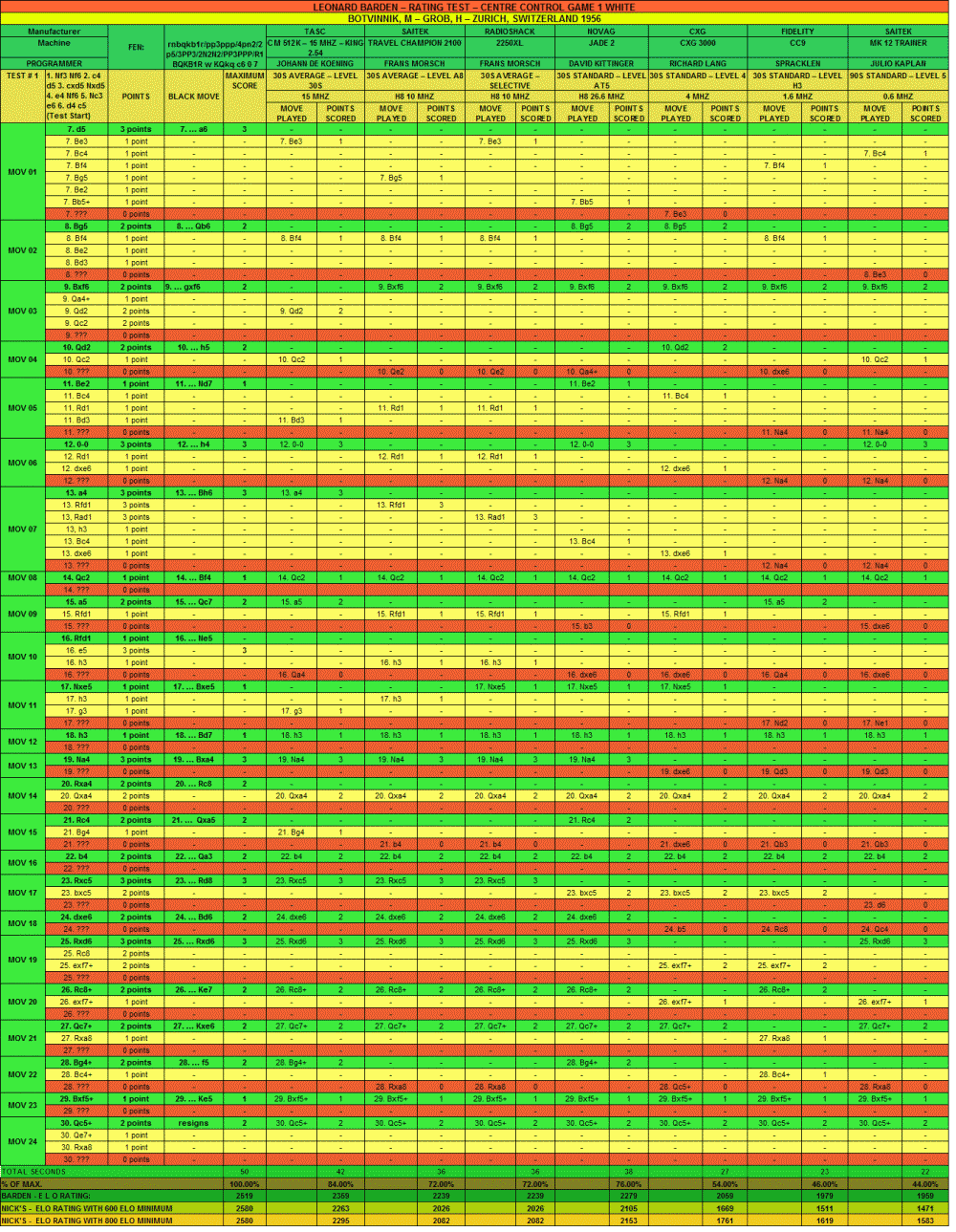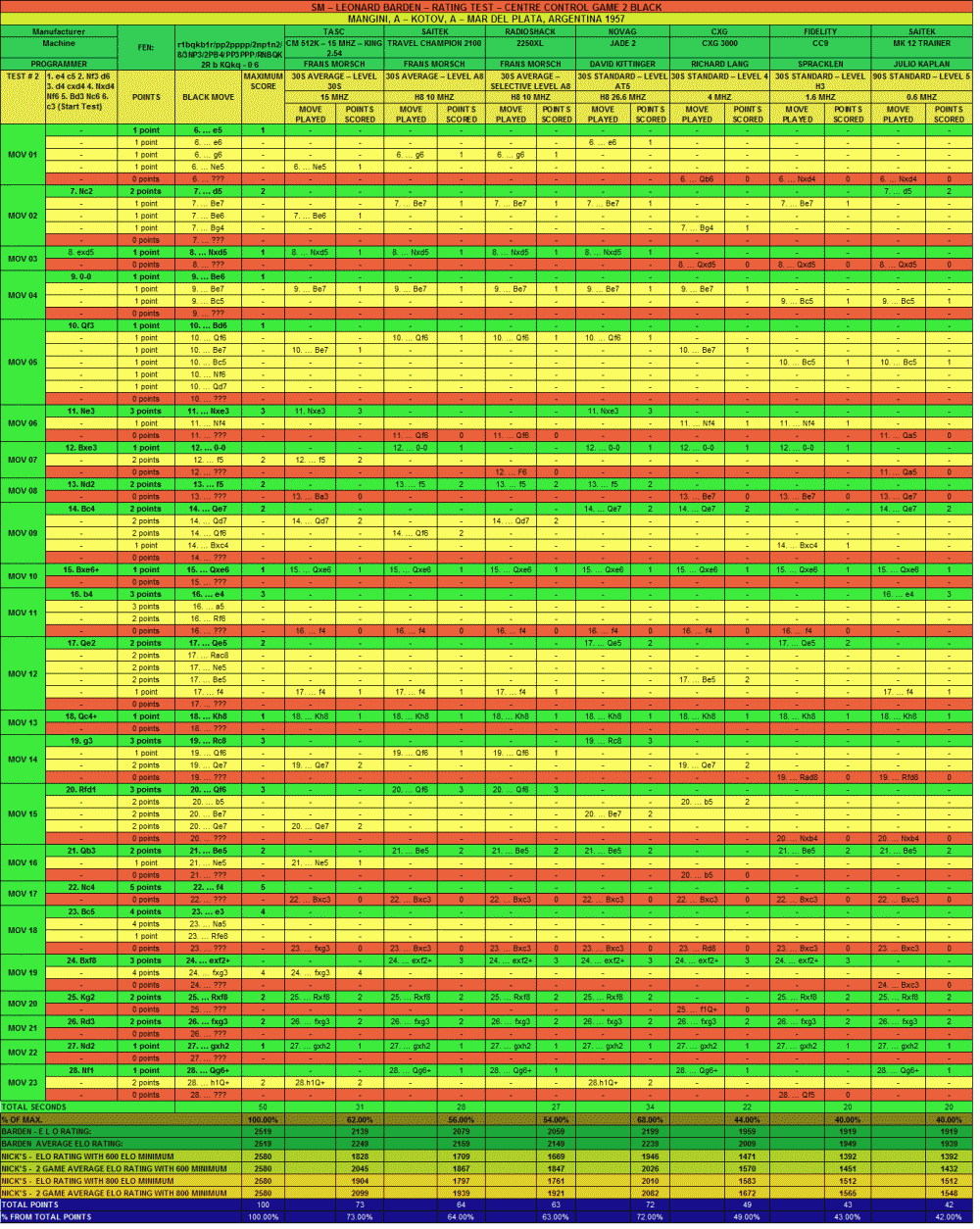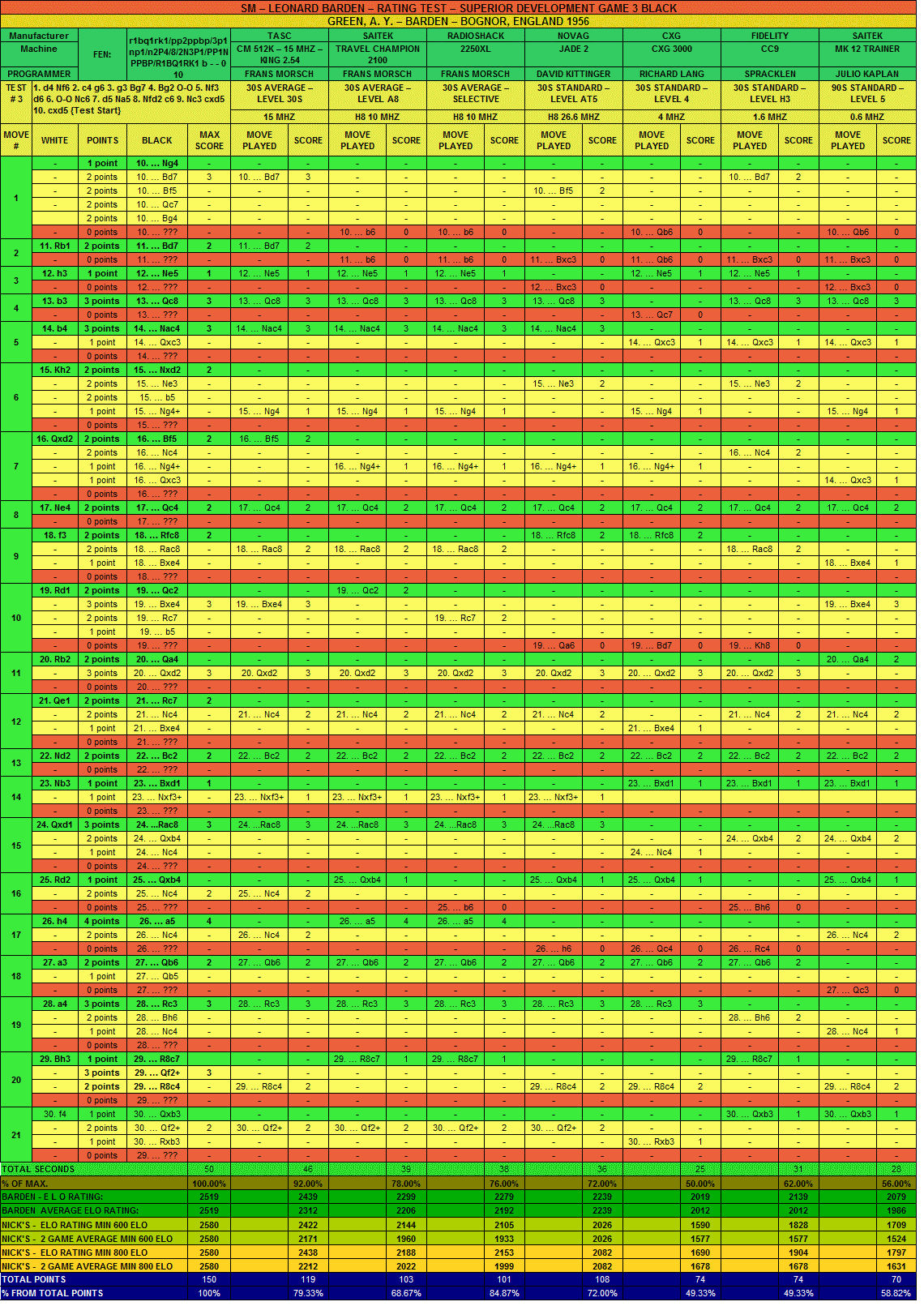Well in this book Leonard Barden evaluated 25 games with a point scoring system of 50 points per game. He suggested that you should play through about 8 of these games and take your average score from these and thereby you should be able to evaluate your worth as a chess player.
He rated your score as follows:
45-50 Points = 2400+ (225 BCF)
Master or grandmaster strength; good enough to qualify for the U.S. Championship or do well in the British Championship. Consider turning Professional!
40-44 Points = 2300 (212) - 2399 (224)
High Score in U.S. Open, British Championship or major international opens.
35-39 Points = 2200 (200) - 2299 (211)
British Championship Standard, winner local weekend opens; club or state champion.
30-34 Points = 2100 (187) - 2199 (199)
Strong club player; 50% scorer in national opens; possible U.S. Amateur champion.
25-29 Points = 2000 (175) - 2099 (186)
Upper board club player; 50% on a good weekend in national opens; if aged under 16, potential junior international player
15-24 Points = 1800 (150) - 1999 (174)
Above-average club player.
8-14 Points = 1400 (100) - 1799 (149)
Home or occasional player up to moderate club player.
0-7 Points = below 1400 (100)
Beginner or near beginner; try to play in chess clubs or weekend opens for match experience.
Well I decided to try this with some chess computers playing them at 30 seconds per move and I quickly found myself enjoying this because at 30 seconds per move you can play through a game quite fast.
Since the book was written in 1957 and computers were not available I realized that a lot of the Barden evaluations would probably be unsound if analyzed by a modern computer. So therefore I am in the process of re-evaluating the points and distributing them move by move, based on modern analysis from modern top chess programs.
Other than that I really did not want to reinvent the wheel since I figure by using games from this book I am not looking for games and also not interpreting anything by finding and selecting other games and thereby creating a potential bias myself.
The Book has 8 Chapters:
01] Centre Control - 2 Games (use 2)
02] Superior Development - 1 Game (use 1)
03] Positional Play - 11 games (use 3)
04] Attacking Play - 8 games (use 3)
05] The Art of Defense - 2 games (use 2)
06] Combinations - 6 games (use 2)
07] Constriction Technique - 1 game (use 1)
08] The Ending - 4 games (use 2)
I am hoping to use 16 of the games to come up with a good Test that covers the different aspects of a chess game. I will try and use the first two games of each chapter thereby I will not be picking any games in advance or to my liking. All I will do is adjust the point scoring system using modern programs to make the scoring more realistic.
Also since I have always wondered where the manufacturers get their exaggerated ratings when they used to advertise their chess computers, I am going to keep the Barden Rating as well as use a BT-Test style rating. One rating with a minimum of 600 start points, a second rating with a minimum of 800 start points.
Since there will be a total of 800 points after 16 games I can use this points system to evaluate all the computers and also try to adjust any ELO rating based on this Higher number.

The above is the rating chart that I am using.
I have already evaluated the first 4 Test Games which I will post later, but here is the 1st Test Game with the computers that I have tested so far:

All of the games were played at whatever average 30 second per move setting the computer has. 60/30 or 40/20 is acceptable.
As you can see from the above I am really pleased that even the lowest computers have a chance at being compared with this kind of test. I am not too worried about the ELO scores for now. I am more interested in the score. But the ELO is also fun to look at.
The Saitek MK 12 Trainer does not have 30 seconds per move setting so for him I used the next level upwards which is 90 seconds per move average time.
Well at that setting the MK 12 Trainer scored almost as many points as the CC9.
So tomorrow afternoon to test the results I am going to try a game with the MK 12 Trainer playing at Tournament level 3 minutes per move and CC9 playing at 30 seconds per move and let’s see what happens !!
Best regards,


